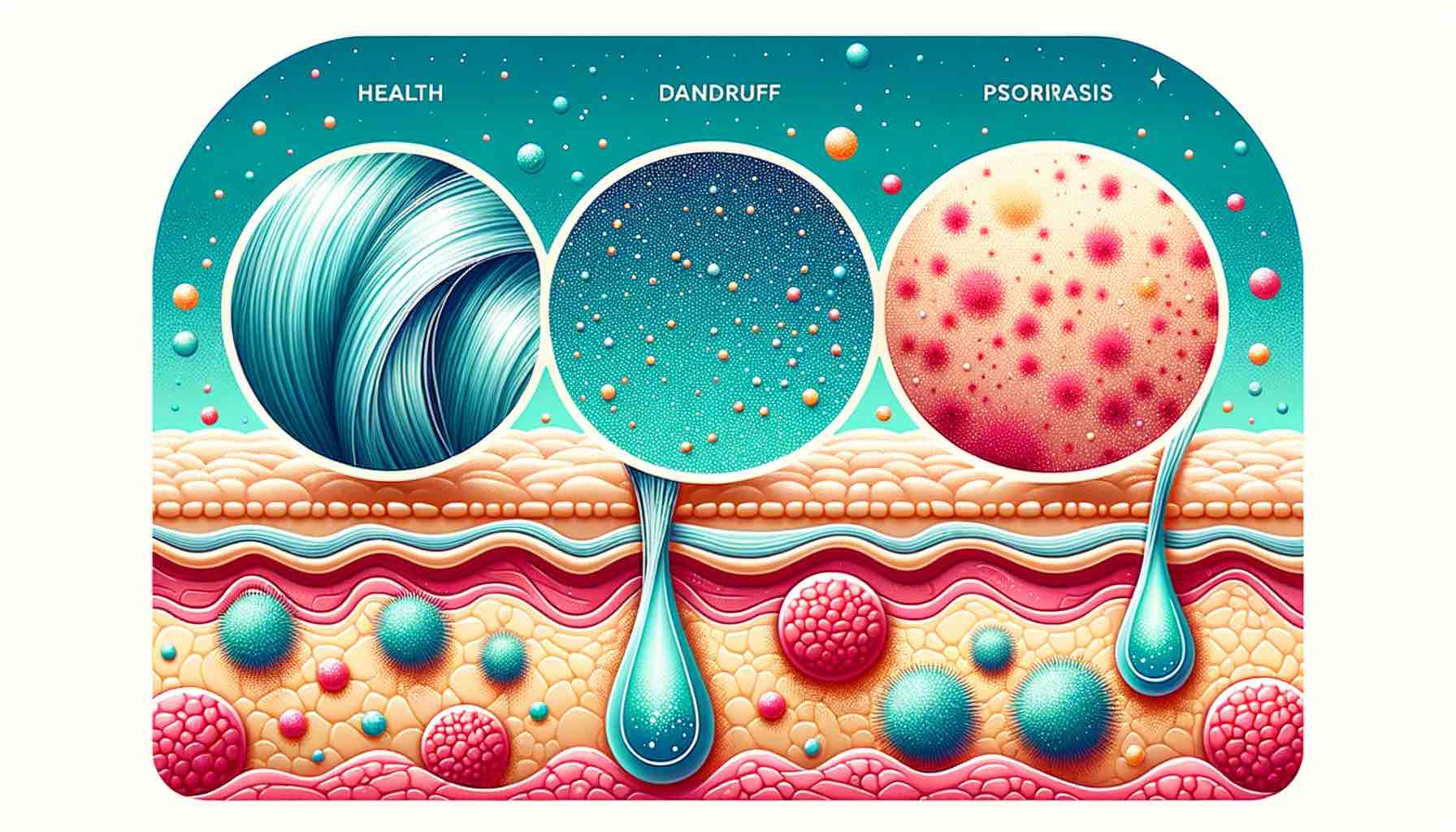
Histamine intolerance and eczema are two intertwined conditions that present a complex landscape of symptoms and triggers. This intricate relationship invites a deeper exploration to unveil how histamine intolerance can influence the manifestation and management of eczema. In this exploration, we aim to unravel the underlying connections, providing insights that can guide individuals in navigating the challenges posed by histamine intolerance and eczema effectively.
2. Understanding Histamine
What is Histamine?
Histamine is a naturally occurring compound, playing a crucial role in the body’s immune responses and inflammatory reactions. It acts as a messenger, communicating signals within the immune system, particularly during allergic reactions.
Histamine and Inflammation
Histamine release is a common response to allergens, resulting in symptoms such as redness, swelling, and itching. In the realm of eczema, histamine’s role is particularly significant, contributing to the skin’s inflammatory responses and the overall severity of eczema symptoms.
Histamine’s Influence on Eczema
Understanding histamine’s influence is fundamental in managing eczema effectively. Its release during allergic reactions can exacerbate eczema symptoms, making it a key consideration in eczema management strategies.
3. Histamine Intolerance: Unveiling the Mystery
Defining Histamine Intolerance
Histamine intolerance arises when the body is unable to break down histamine effectively, leading to an accumulation that triggers various symptoms, resembling allergic reactions.
Symptoms and Triggers
Common manifestations include skin rashes, itching, and gastrointestinal discomfort, which can subtly yet profoundly influence eczema’s severity and management.
Histamine Intolerance and Eczema
Histamine intolerance can act as a potent aggravator in eczema, enhancing the skin’s susceptibility to inflammation and irritation. Managing this requires a multifaceted approach, considering aspects such as diet, which plays a significant role in influencing histamine levels and eczema symptoms.
Navigating Dietary Influences
Certain foods, rich in histamines, can influence the body’s histamine levels and the severity of eczema symptoms. Understanding and navigating these dietary influences is essential in managing histamine intolerance and its impact on eczema (source).
4. The Link Between Histamine Intolerance and Eczema
Exploring the connection between histamine intolerance and eczema unveils a nuanced interaction that influences the manifestation and severity of eczema symptoms. Histamine intolerance can subtly exacerbate eczema’s characteristic inflammation and irritation, making its management a more complex task.
Understanding the Interaction
The inability to effectively metabolize histamine leads to an accumulation in the body, which can enhance the skin’s sensitivity and inflammatory responses, common in eczema. This interaction necessitates a careful approach to managing both conditions, considering their mutual influence.
Scientific Insights
Research and scientific insights into this connection provide a foundation for understanding and navigating the intertwined paths of histamine intolerance and eczema. These insights guide the development of strategies and approaches that resonate with individual needs and experiences in managing eczema effectively.
5. Dietary Considerations: Navigating the Histamine Landscape
Diet holds a pivotal role in managing histamine intolerance and its influence on eczema. A mindful approach to diet can help modulate histamine levels, influencing the severity and frequency of eczema flare-ups.
Foods to Focus On and Avoid
Certain foods are known to be high in histamines or can trigger histamine release. Identifying and navigating these foods is essential in crafting a diet that supports the management of eczema symptoms related to histamine intolerance (source).
Adopting a Low-Histamine Diet
A low-histamine diet emerges as a practical strategy, focusing on foods that are less likely to elevate histamine levels or exacerbate eczema symptoms. This dietary approach can be a cornerstone in managing the intertwined challenges of histamine intolerance and eczema.
6. Therapeutic Approaches: Anti-Histamines and Other Treatments
Therapeutic approaches, such as anti-histamines, offer potential benefits in managing histamine-related eczema symptoms. These medications can help alleviate discomfort, reduce inflammation, and improve the overall quality of life.
Exploring Anti-Histamines
Anti-histamines work by blocking histamine receptors, mitigating its effects, and providing relief from symptoms such as itching and inflammation. Understanding the role and effectiveness of different anti-histamines is essential in making informed decisions that align with individual needs and preferences.
Complementary Treatments
Beyond anti-histamines, exploring complementary treatments and therapies can enhance the overall approach to managing histamine intolerance and eczema. These additional options can offer supportive benefits, contributing to a more comprehensive and effective management strategy.
7. Community Insights and Shared Wisdom
The journey through histamine intolerance and eczema is uniquely personal, yet shared experiences within communities can offer invaluable insights and support. Community platforms foster a space where individuals can share their journeys, strategies, and learnings, contributing to a collective wisdom that can guide others.
Harnessing the Power of Shared Experiences
Communities, forums, and social platforms become a reservoir of real-life experiences and practical strategies. Here, individuals can find solace in shared journeys and discover new approaches and coping mechanisms that may resonate with their own experiences.
Diverse Perspectives and Strategies
The diversity within community-shared insights offers a rich tapestry of perspectives, allowing individuals to explore various strategies and approaches in managing histamine intolerance and eczema. These shared wisdoms can be instrumental in uncovering practical and effective strategies.
8. Practical Strategies and Tips
Navigating histamine intolerance and eczema requires practical strategies that align with individual needs and lifestyles. These strategies encompass various aspects, from dietary modifications to lifestyle adjustments, each contributing to the effective management of symptoms.
Crafting Personalized Approaches
Personalized strategies, crafted to resonate with individual needs and experiences, become essential pillars in managing histamine intolerance and eczema. These approaches should be adaptable, allowing for continuous refinement based on personal responses and effectiveness.
Continuous Exploration and Adaptation
The journey through managing these conditions is marked by continuous exploration and adaptation. It involves evaluating the effectiveness of adopted strategies, remaining open to new approaches, and adapting based on personal experiences and responses.
9. References and Further Reading
Navigating through histamine intolerance and eczema can be a complex journey. Having a collection of reliable resources and references can be immensely helpful in guiding decisions and strategies for managing these conditions. Here are some curated resources that delve deeper into understanding and managing histamine intolerance and eczema:
- Ear Eczema and Dermatitis: Unveiling the Mystery: A detailed exploration of ear eczema and dermatitis, providing insights into its causes, symptoms, and management strategies.
- Foods to Embrace and Avoid for Eczema Relief: A comprehensive guide on the dietary considerations essential for managing eczema effectively.
- Eczema and Dermatitis: Causes and Coping Mechanisms: An article that delves into the various causes of eczema and dermatitis, offering coping strategies and management tips.
- Exploring Eucrisa: An Eczema Solution: A focused exploration of Eucrisa as a potential solution for managing eczema symptoms.
- Soothing the Itch: Guide to Eczema Relief: A practical guide offering strategies and tips for soothing the discomfort and itchiness associated with eczema.
These resources offer a wealth of information, insights, and practical strategies, contributing to a more informed and effective approach to managing histamine intolerance and eczema.
FAQs
- What is the relationship between histamine intolerance and eczema?
Histamine intolerance and eczema often intertwine, where histamine intolerance can exacerbate the symptoms of eczema, such as inflammation and itching, making the management of eczema more complex. - How does diet influence histamine intolerance and eczema?
Diet plays a significant role, as certain foods are rich in histamines or can trigger histamine release, influencing the severity and frequency of eczema flare-ups. - Are there specific foods that should be avoided in histamine intolerance and eczema?
Yes, avoiding foods high in histamines, such as fermented foods, aged cheeses, and alcohol, can be beneficial in managing the symptoms of both conditions. - Can anti-histamines help in managing eczema symptoms related to histamine intolerance?
Anti-histamines can be effective in alleviating symptoms like itching and inflammation by blocking histamine receptors, offering relief from eczema symptoms exacerbated by histamine intolerance. - What role do communities play in managing histamine intolerance and eczema?
Communities offer a platform for shared experiences and insights, providing diverse perspectives and practical strategies that can be beneficial in navigating histamine intolerance and eczema. - How can one personalize strategies to manage histamine intolerance and eczema?
Personalizing strategies involves continuous exploration and adaptation, evaluating the effectiveness of different approaches, and making adjustments based on individual responses and needs. - Are there any complementary therapies effective in managing histamine intolerance and eczema?
Complementary therapies, such as acupuncture and herbal remedies, may offer supportive benefits in managing the symptoms of histamine intolerance and eczema, but their effectiveness can vary based on individual responses. - How does histamine contribute to inflammation in eczema?
Histamine release during allergic reactions can enhance the skin’s inflammatory responses, contributing to the redness, swelling, and itching commonly experienced in eczema. - Is it necessary to consult a healthcare professional for histamine intolerance and eczema management?
Consulting a healthcare professional is essential for tailored advice and strategies, ensuring that the approaches adopted are aligned with individual health needs and conditions. - Where can one find reliable resources and references for managing histamine intolerance and eczema?
Reliable resources can be found in scientific articles, specialized websites, and comprehensive guides that offer in-depth insights and practical strategies for managing these conditions.
Blog Tags
histamine intolerance, eczema, diet, anti-histamines, inflammation, community insights, practical strategies, dietary considerations, therapeutic approaches, personalized strategies













